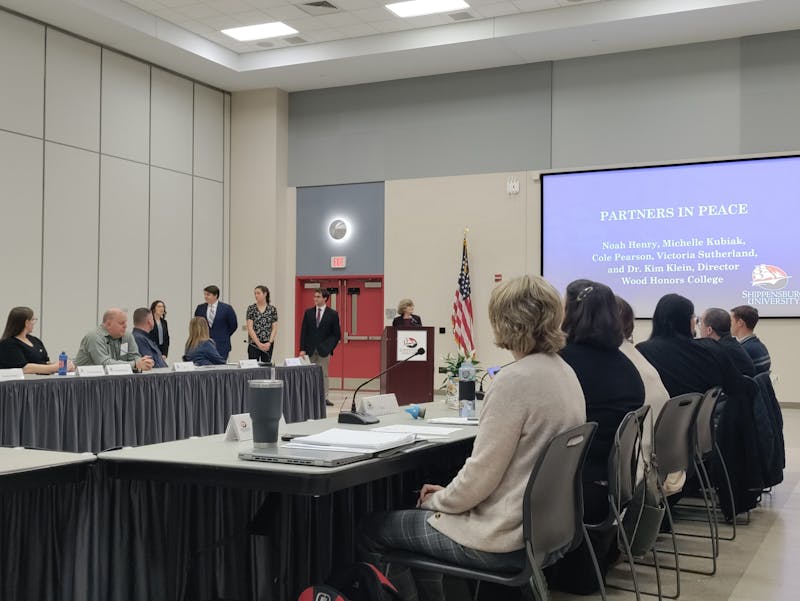If you are reading this, you are probably a Shippensburg University student returning to, or just starting college. And if that is the case, it means you, or your family, jumped through the hoops and over the hurdles of paying your tuition with federal aid, private loans, scholarships and personal savings.
The task of getting money from the government and your bank is not always an easy process. Going through the Free Application for Federal Student Aid (FASFA) is one of the first steps to getting grants and low-interest loans. But to the weak of heart, the task of answering dozens of questions, crossing every “t” and dotting every “i” can be perilous.
Even if you can manage to fill out the endless paperwork involving tax forms, marriage certificates, income statements and more, then you are stuck with paying off debts for years to come. But you are not alone, as an estimated 40 million Americans have at least one student loan to payback, according to a 2014 CNN report.
While going to a state-run school, like SU, is cheaper than most other universities, tuition rates are rising as the state and federal governments are investing less money toward education. The data on the Pennsylvania State System for Higher Education (PASSHE) website shows that state funding for PASSHE’s 14 universities has decreased by approximately $65 million dollars since the 2007-08 school year.
Affordable access to education seems like a valuable part of society, but why is it not always treated as such?
“Education is the key to unlock the golden door of freedom,” George Washington Carver said, and he would know — Carver was an American, born into slavery and later became a scientist.
If education is truly a foundation of freedom, and America is a country proud of providing freedom as a basic right, then the question as to why education is not more valuable than what it is becomes increasingly odd.
Sure the U.S. has had to make cutbacks ever since the 2008 recession, and America tends to not have the same sort of universal social programs like its European allies, but if finances limit access to education, how can U.S. citizens truly fulfill the American Dream?
President Barack Obama apparently does see a way, as he is pushing The Health Care and Education Reconciliation Act — a $2 billion package to stimulate the growth and resources of community colleges across the country, according to the White House website.
Obama, in his final months as president, is making the first move to achieve a nationwide goal by 2020 of having the most college graduates in the world (proportionatal to population).
Though the 2016 presidential election is still 14 months away, candidates from both major parties are also shedding light on their plans to make education an important initiative in their campaign and presidency.
Self-proclaimed Democratic socialist and U.S. Sen. Bernie Sanders has announced one of the most extreme of plans to provide education to Americans beyond high school.
Sanders wants to reform the financial “island” of Wall Street in many ways, but tucked among his numerous ideas on his website, berniesanders.com, is perhaps one of the biggest initiatives of his campaign. It is to put a tax on financial transactions that occur with Wall Street businesses in order to make any public college in the nation tuition free.
If his plan ever takes hold, any student attending SU could go to college without taking any loans out from a bank or the federal government.
Indeed, the idea is outlandish in American society, but there are numerous countries in Europe that will pay for their citizens’ tuition, and some nations will even cover the education costs for foreign students, including Germany, Finland and Norway, according to The Washington Post.
Republican presidential candidate Marco Rubio has a different idea of how students can pay for college. According to The Economist, Rubio would have private sources invest money toward a student’s tuition and funds would be paid back with a portion of the student’s salary when he or she has a job.
As millions of students return to schools across the nation and world, it will be up to them to determine the value of their education. As an SU student, you will have the choice to decide whether you will appreciate your time here. As the 2016 presidential election slowly approaches, you will also decide if you will take an active role in shaping your world.





The Slate welcomes thoughtful discussion on all of our stories, but please keep comments civil and on-topic. Read our full guidelines here.